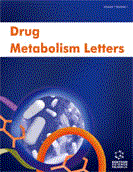Abstract
UDP-glucuronosyltransferase 1A6 (UGT1A6) is involved in metabolizing non-steroidal anti-inflammatory drugs (NSAIDs). Genotype variation in UGT1A6 may influence the metabolism of NSAIDs and we studied whether this might modulate the gastrointestinal toxicity of NSAIDs. UGT1A6 genotypes of 114 patients with peptic ulcer haemorrhage were compared with those of two subsets of controls: 158 cardiology patients using similar amounts of NSAIDs and 140 healthy controls, hardly using NSAIDs. Risk factors for peptic ulcer bleeding were male gender (Odds ratio (OR) 2.66, 95% confidence interval (CI) 1.7-4.2), age above 60 years (OR 2.15, 95% CI 1.4-3.4) and use of NSAIDs/aspirin (OR 4.50, 95% CI 2.8-7.3). UGT1A6 genotype frequencies did not differ between patients with peptic ulcer and the two control groups (p=0.76). We conclude that polymorphic UGT1A6 is not implicated in the pathogenesis of NSAIDs-related peptic ulcer disease.
Keywords: UDP-glucuronosyltransferase 1A6, upper gastrointestinal symptoms, upper gastrointestinal bleeding, non-steroidal anti-inflammatory drugs, aspirin, genetic polymorphism
 10
10










